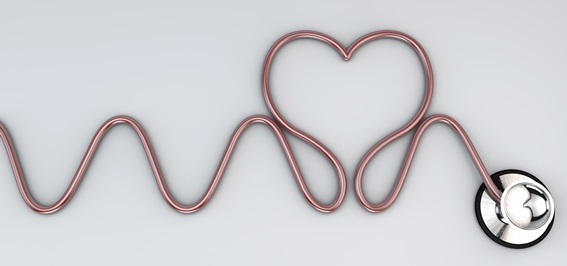"Eighteen and out!" That was my Dad's mantra. He'd lost his mother at age 5, and learned the hard way to fend for himself in the hardscrabble world of the Depression. He became handy, resourceful and a good provider. By the time I turned 18 he wanted me to be capable of standing on my own two feet, in the event he wasn't there to guide me.
As his first-born, I became a hyper-responsible child. I rose to the top of my class, and went to work as soon as I was old enough to babysit. I became the problem-solver in any group, and could be counted on in moments of crisis. I became independent, reliable and productive, and for that I'm grateful.
But there was a shadow side to these strengths. I developed a reflex to "fix" things, believing the solution to every problem was up to me. It rarely occurred to me to ask for help. I overlooked ideas and resources that could have made my life a lot easier.
So when I went to medical school, I thought it was up to me to "fix" my patients. If they didn't get better, I had to study more and do more until they did.
"Fixing" worked fine for simple problems, but the complex, chronic cases bedeviled me. Patients didn't respond as expected to treatment. A few barely tolerated treatment at all. After months of mixed success, I realized that my drive to "fix" was squelching a significant part of the healing equation: my patients' input.
They were the experts on what was actually going on. My contribution was only as good as what I could learn from them.
"Bodies always tell the truth. Sometimes our job is to listen closely, provide the support they need, and get out of the way."
I changed the flow of my clinic encounters. I asked more questions. I helped people describe more clearly what they felt, and talk more about what was going on in their lives. There was rarely a piece of irrelevant information.
Our visits became a conversation of equals. My patients became expert at providing data. I helped them connect the dots.
We all made progress. My patients felt better and stood taller as they gained confidence in their ability to contribute to their own wellbeing.
Partnership became even more important as I began treating advanced cancer patients. Their cancers had returned or persisted despite everyone's well-meaning attempts to "fix" them. The mainstream system had run out of ideas, or could only offer treatment more painful than the disease. They'd come to me looking for alternatives.
Only then did I realize that I'd been ignoring the third partner in the conversation: the patient's body.
Our bodies know a lot about healing themselves: they were designed to do that. Most important, bodies always tell the truth. Sometimes our job is to listen closely, provide the support they need, and get out of the way.
When the path forward was unclear, I helped my patients create stillness so they could ask their body what it needed. We welcomed whatever response emerged.
The answers ranged all over the map, but they always made the best starting point for treatment. When we allowed the body its say, healing often progressed against all odds.
I'm not claiming my late-stage patients were all cured. Some have enjoyed remarkable physical healing and lived well beyond their prognosis. Some stabilized, and some passed away. But all lived in a state of greater wellbeing during the time they had, because they weren't suppressing or denying themselves what they most deeply needed.
The wisdom of turning within and listening is marvelously documented in the brilliant book Radical Remission by Kelly Turner, PhD. Turner interviewed over 1,000 survivors who achieved improbable remission from late-stage cancers. Her question to each was the same: what did they believe had contributed most to their healing?
Many of these survivors had "failed" standard treatment several times, and were given no hope of cure by the mainstream system. They consulted experts in all manner of alternative healing. Some of what they tried worked, some didn't. In the end there was no outside authority they could turn to for an answer: they had no choice but to turn to their own wisdom. They ultimately found their best guidance right at home.
I'm certainly healthier since I've let my body take the lead. It's far wiser than I am, and heals best when I let go of my instinct to "fix" it and instead align with its needs.
What's your body telling you?
---------------------
Dr. Shani Fox helps cancer survivors get back in charge of their health and rebuild their confidence so they can make the most of their new chance at life. She encourages survivors not to settle for a "new normal", but to create a "new extraordinary".
Dr. Shani is the creator of the leading-edge "Back in Charge!" medical model for survivor care and the author of The Cancer Survivor's Fear First Aid Kit. Her messages about your innate power to create wellness and happiness make her a popular national speaker, radio guest and blogger for cancer survivor communities.
Dr. Shani's "7 Common Myths Cancer Survivors Fall For...and How to Avoid Them" busts misconceptions that may stand between you and the health and happiness you deserve after cancer. Download your free copy today at www.7cancermyths.com .
